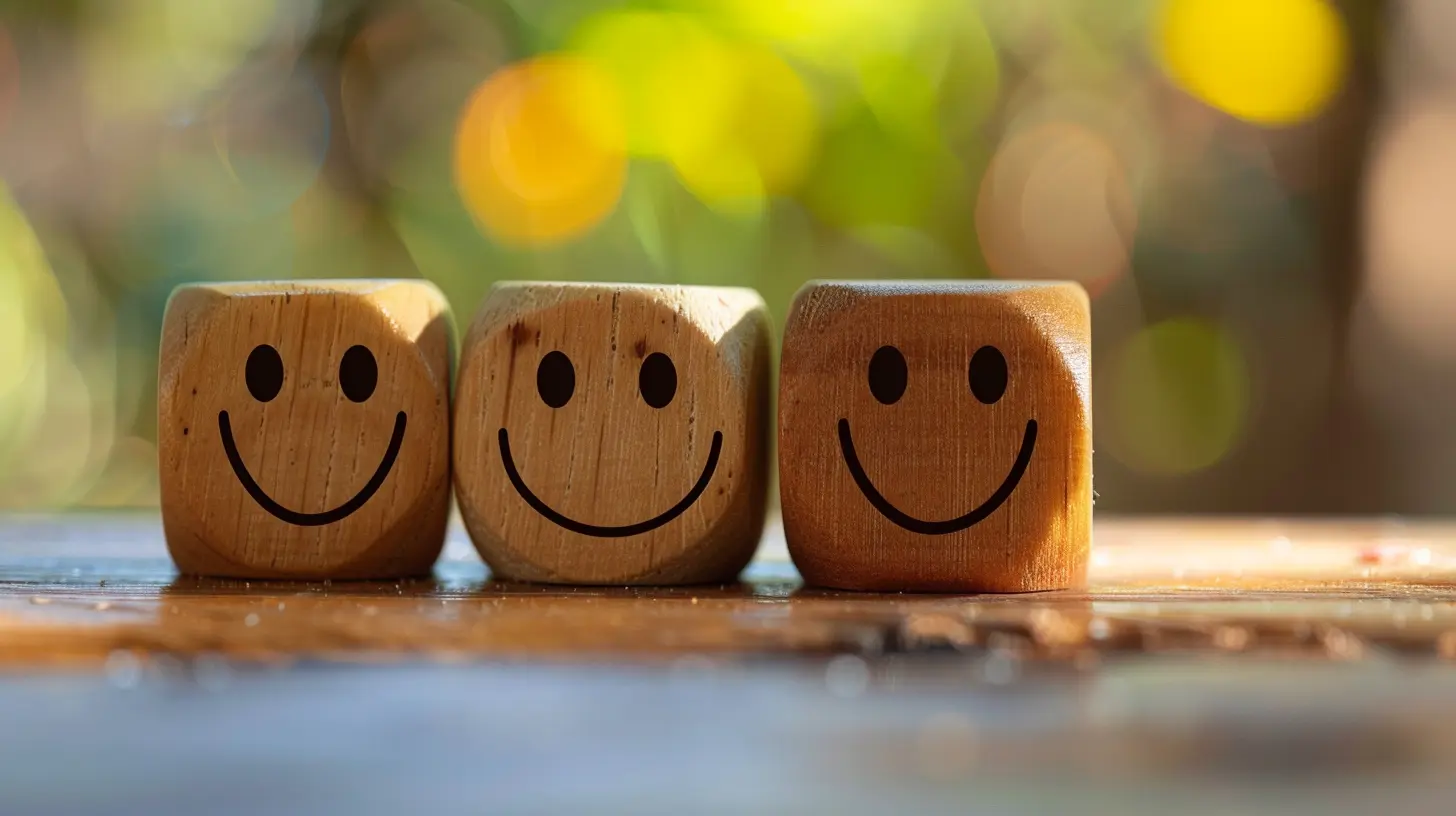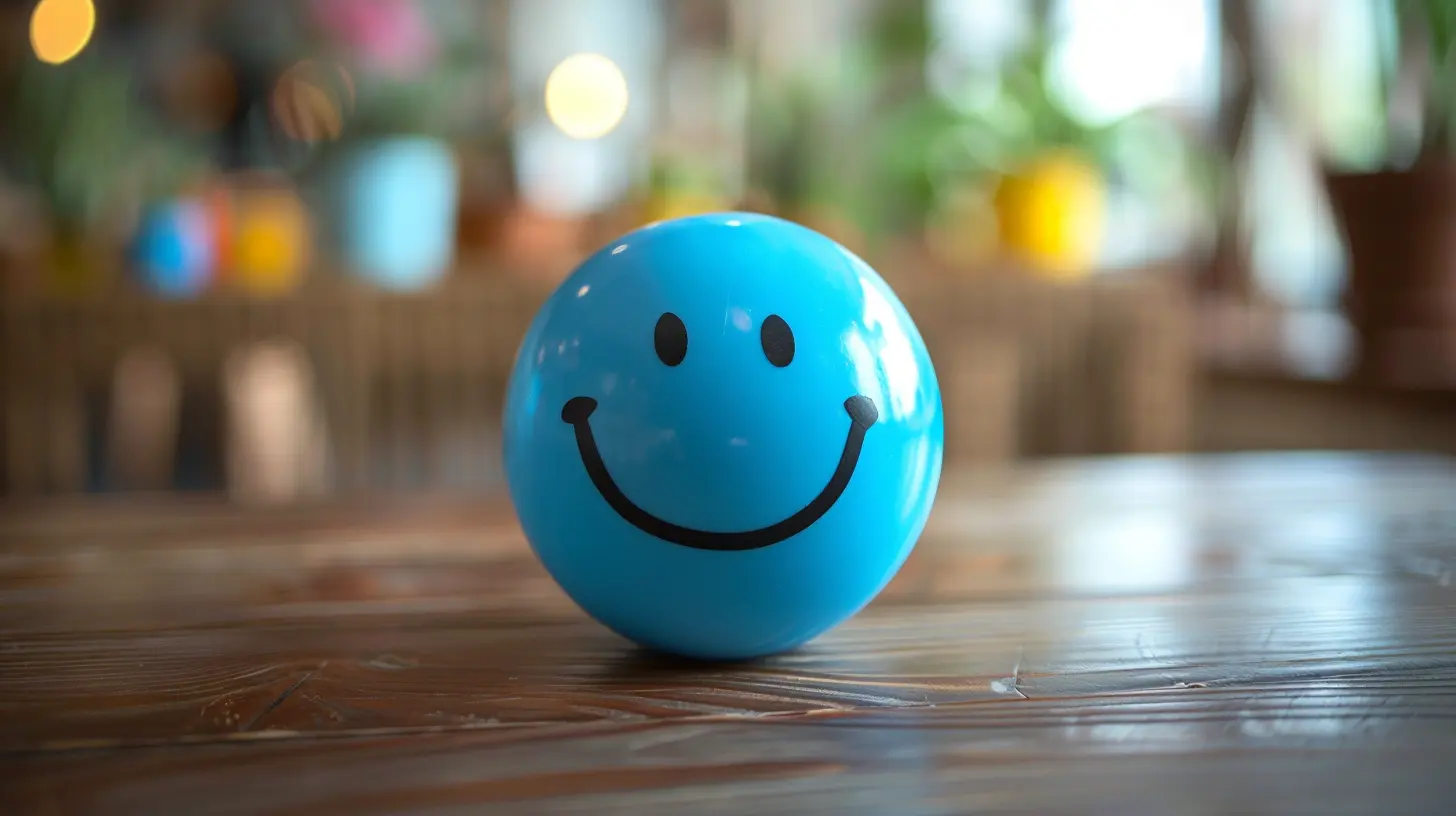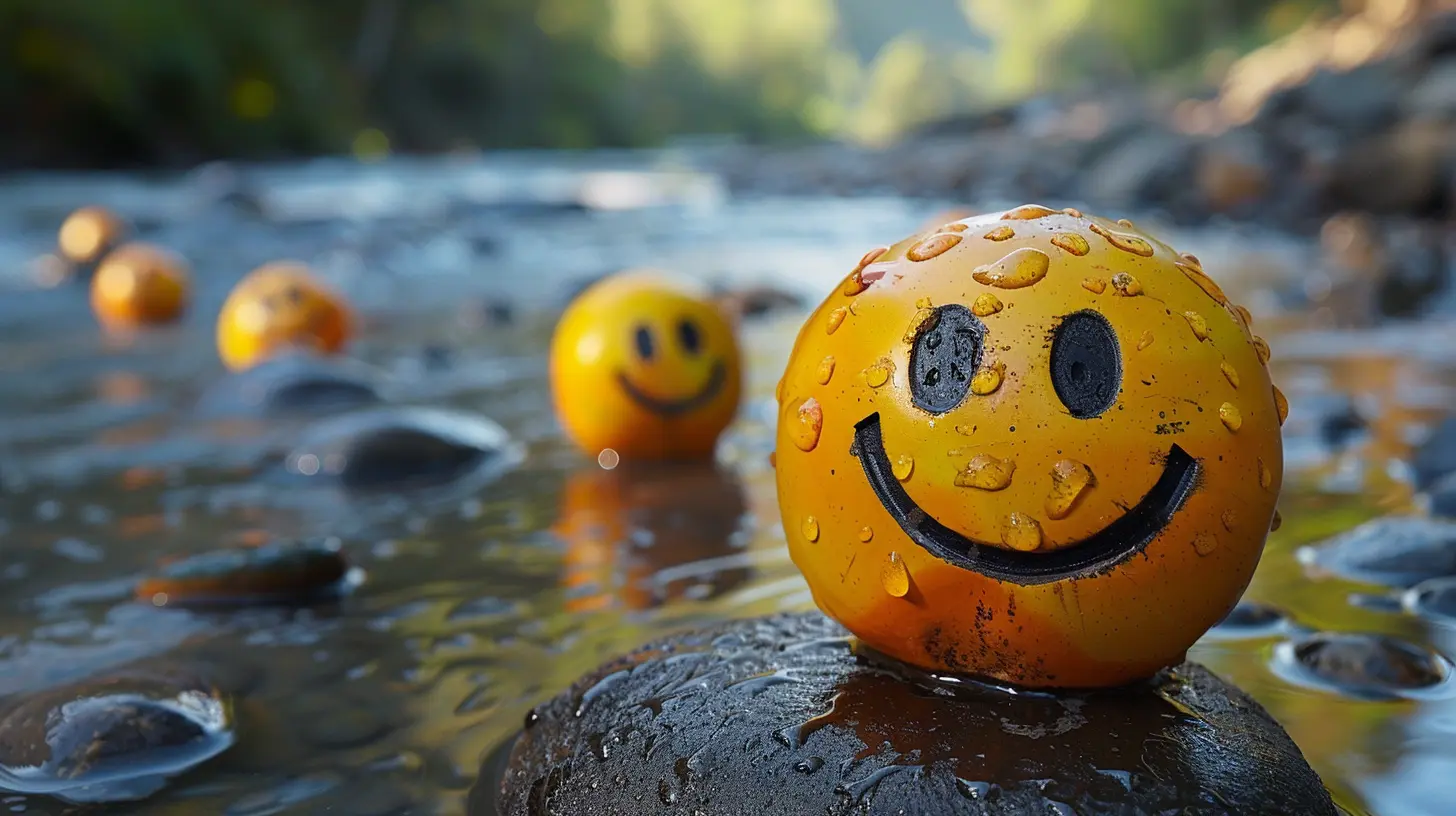How Positive Psychology Can Help You Create Lasting, Positive Habits
16 August 2025
Have you ever been inspired to change your life—only to find yourself back at square one just a few weeks later? You set ambitious goals. You make vision boards. You swear this time will be different. But somewhere between the excitement and the execution, things fizzle out. Why is it so hard to make good habits stick?
Well, here's a plot twist: maybe we're trying to change our lives using the wrong tools. What if willpower isn’t enough? What if old-school motivational tactics are missing something? Enter positive psychology—the science of flourishing, and the secret sauce to building habits that actually last.
In this article, we’re diving deep into how positive psychology isn’t just about smiling more or ignoring problems. It’s a powerful, research-backed approach that can reshape your behavior, boost your well-being, and help you hardwire positive habits for the long haul. Ready to unravel the mystery?
What Is Positive Psychology, Really?
Let’s start by clearing up a common misconception.Positive psychology isn't about toxic positivity or pretending everything is perfect. It's not about slapping on a fake grin and ignoring life's chaos. It’s actually a branch of psychology that studies what makes life worth living—like happiness, purpose, resilience, optimism, and human strengths.
In a way, it flips the script on traditional psychology, which often focuses on mental illness. Positive psychology asks a different question: What helps people thrive, even in the face of adversity?
And here's where it gets juicy—these principles don't just help us feel better; they can also help us be better… by forming habits that matter.
Why Most Habits Fail (Hint: It’s Not Just You)
Before we dive into the “how,” let’s address the painfully familiar cycle of setting goals and abandoning them.We say we’ll wake up at 5 a.m., work out five days a week, write a novel before breakfast—and two weeks later, we're binge-watching shows in our pajamas by noon. Sound familiar?
Here’s why:
- 🧠 We rely too much on willpower—a limited and unreliable resource.
- 📈 We aim too high, too fast—big changes stress our brains and feel unsustainable.
- 😐 We forget the emotional reward—if it doesn’t feel good, we won’t do it for long.
- ❌ We frame change in the negative—“stop snacking,” “don’t be lazy,” “quit procrastinating.”
So what if, instead of forcing ourselves to change through sheer grit, we made change feel good, look fun, and fit naturally into who we are?
That’s where positive psychology becomes your best ally.
How Positive Psychology Fuels Habit Formation
Let’s connect the dots: positive psychology doesn’t just study happiness for the sake of it. It reveals how emotional well-being and personal strengths can be the foundation for real, lasting habits.Here's how it works:
1. Leveraging Positive Emotions to Reinforce Behavior
Ever notice how you’re more likely to repeat something when it makes you feel good?That’s not just coincidence—it’s science. Positive emotions like joy, pride, and gratitude light up the reward centers of your brain. They act like little "yes" signals, encouraging your mind to do that thing again.
Positive psychology encourages us to create environments and routines that spark joy—not dread.
🍀 Try this:
- Combine your new habit with something enjoyable. Want to start jogging? Create an upbeat playlist or jog in a scenic park.- Celebrate tiny wins. Smile after completing a task, high-five yourself, or say a small “yes!” out loud.
This emotional feedback loop is the key to habit reinforcement.
2. Finding Flow: The Sweet Spot Between Challenge and Skill
You know that feeling when you’re so immersed in something that time just melts away? That’s flow—a central idea in positive psychology.Flow happens when your skills meet just the right level of challenge. It’s not too easy (boring) or too hard (frustrating). You’re in the zone.
Habits that help you enter a flow state are more likely to stick because they naturally feel rewarding and energizing.
⚡ Pro tip:
- Choose habits that align with your strengths. Are you a people person? Make social connections part of your new routine. Love patterns and problem-solving? Track your progress with spreadsheets or apps.When a habit matches who you are, working on it feels like play, not pressure.
3. Tapping into Your "Why" With Intrinsic Motivation
Here’s a hard truth: external motivators (like rewards or peer pressure) might work for a while, but they fade fast.Positive psychology points us toward intrinsic motivation—the inner fire that makes us want to do something because it feels meaningful, not because someone told us to.
Think about it. Which is more compelling?
- "I want to eat healthy because I should."
- "I want to nourish my body so I have the energy to do what I love."
The second one connects to a deeper purpose—and our brains crave purpose like plants crave sunlight.
4. Using Strengths to Build Sustainable Routines
We often focus on fixing weaknesses—but what if we started with our superpowers?According to positive psychology, knowing and using your signature strengths (like creativity, bravery, kindness, or perseverance) can make a habit more motivating and enjoyable.
🧩 Mini challenge:
Take a free VIA Strengths Survey online. Find your top 5 strengths. Then ask: how can I use these to create or reinforce my habit?If "curiosity" is a strength, try learning something new during your morning routine. If "gratitude" is your jam, end your day with a gratitude journal.
You’re not changing yourself—you’re amplifying who you already are.
5. Resilience: Bouncing Back Without Beating Yourself Up
Let’s be real—no matter how amazing your plan is, life will throw curveballs. You’ll skip the gym. You’ll stress-eat a donut. You’ll snooze the alarm. So what then?That’s where resilience—a pillar of positive psychology—comes in.
Resilient people don’t scream “I’ve failed!” after a slipup. They say, “This is just a detour. I’ll get back on track tomorrow.”
Positive psychology encourages self-compassion, not guilt. It reminds us that progress isn’t linear, and setbacks are part of the journey.
💡 Key mindset shift:
Stop asking, “Why do I always mess up?”Start asking, “What can I learn from this and try again?”

The Science-Backed Blueprint: Putting It All Together
Let’s break it down into action steps you can actually use.🧠 Step 1: Get Clear on Your “Why”
Dig deep. What’s the emotional or personal reason you want to build this habit? Connect it to your values and goals.🌟 Step 2: Identify Your Strengths
Use tools like the VIA Survey or think about what energizes you. Then align your habit with those strengths.😄 Step 3: Make It Feel Good Right Away
Incorporate fun, rewards, or joy into the process. The brain loves instant gratification, so give it a taste while the habit is forming.🌀 Step 4: Create Flow Opportunities
Don’t force activities that feel draining. Adjust the challenge level so that it engages you without overwhelming you.💓 Step 5: Practice Self-Compassion and Resilience
Expect that you’ll stumble—it’s normal. What matters is bouncing back with kindness and curiosity, not shame.Positive Habits You Can Start Today (With a Psychological Twist)
Need ideas to get started? Here are some habits perfectly suited for a positive psychology makeover:- 🧘 Mindfulness or meditation – Build presence and resilience by noticing your thoughts without judgment.
- 📓 Gratitude journaling – Write down three things you’re thankful for each night to boost happiness and reduce stress.
- 👟 Movement you enjoy – Dance, walk, stretch—anything that makes your body and mood feel better.
- ☀️ Morning intention-setting – Start the day by choosing a word or value to guide your decisions.
- 💬 Acts of kindness – Do one unexpected nice thing for someone each day. It boosts their mood—and yours.
Final Thoughts: You’re Not Broken—Your System Is
Let’s get one thing straight: if you’ve struggled to build habits in the past, you’re not lazy. You don’t lack discipline. You’re human.Traditional methods often ignore the emotional and psychological drivers of behavior. Positive psychology fills in the gaps, helping you build habits that aren’t just effective—but enjoyable, meaningful, and sustainable.
You’re not starting from scratch. You’re starting from strength.
So the next time you say, “This time it’ll stick,” you won’t be making a wish. You’ll be building a system—backed by science, powered by joy, and tailored to who you truly are.
all images in this post were generated using AI tools
Category:
Positive PsychologyAuthor:

Ember Forbes
Discussion
rate this article
1 comments
Aleta Stone
Positive psychology: because 'I'll start on Monday' should really be 'I'll start... now!'”
September 21, 2025 at 4:43 AM

Ember Forbes
Absolutely! Embracing the present moment is key to initiating positive change. Let's make 'now' our starting point!


